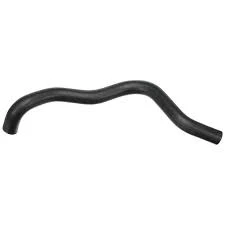Choosing the Right Fuel Hose for Ethanol Blended Fuels and Their Compatibility
Nov . 29, 2024 15:46 Back to list
Choosing the Right Fuel Hose for Ethanol Blended Fuels and Their Compatibility
Understanding Ethanol-Compatible Fuel Hoses A Comprehensive Guide
As the automotive industry evolves, the need for environmentally friendly fuels has gained momentum. Ethanol, a renewable fuel derived from plants, is increasingly being blended with gasoline to power various vehicles. Consequently, the compatibility of fuel systems with ethanol has become a crucial consideration for manufacturers and consumers alike. One vital component that requires attention in this context is the fuel hose. This article delves into the importance of ethanol-compatible fuel hoses, their characteristics, and what to consider when selecting them.
What Is Ethanol-Compatibility?
Ethanol, particularly in blends such as E10 (10% ethanol, 90% gasoline) and E85 (85% ethanol, 15% gasoline), presents unique challenges to fuel system components. Traditional fuel hoses, often made from materials that are not resistant to ethanol, may degrade over time when exposed to this alcohol-based fuel. Therefore, it’s essential to use fuel hoses explicitly labeled as ethanol-compatible. These hoses are designed to withstand the corrosive effects of ethanol, ensuring longevity and reliability for your vehicle's fuel system.
Key Characteristics of Ethanol-Compatible Fuel Hoses
1. Material Composition Ethanol-compatible fuel hoses are typically made from synthetic rubber or thermoplastic materials that resist swelling, cracking, and hardening when in contact with ethanol. Common materials include fluoropolymers and silicone, which offer excellent chemical resistance.
2. Temperature Resistance Ethanol can elevate temperatures within the fuel system, making heat resistance an important property of ethanol-compatible hoses. These hoses can withstand a broader range of temperatures without compromising their integrity.
3. Pressure Rating Fuel systems often operate under varying pressures, especially in modern vehicles. Ethanol-compatible hoses are engineered to manage these pressures effectively, preventing leaks or ruptures that could lead to safety hazards.
4. Flexibility and Durability Flexibility is crucial for ease of installation and to accommodate engine movement. Ethanol-compatible fuel hoses maintain flexibility over time, even when subjected to the harsh conditions of the engine compartment.
ethanol compatible fuel hose

5. Standards and Certification Look for hoses that meet or exceed industry standards, such as SAE (Society of Automotive Engineers) J30 specifications, which guarantee chemical resistance and durability. Certified hoses not only comply with safety regulations but also offer peace of mind.
Choosing the Right Fuel Hose
When selecting an ethanol-compatible fuel hose, consider the following factors
- Application Determine the specific application for the hose, whether for fuel supply, return lines, or vapor recovery. Different applications may require hoses with varying specifications.
- Size and Fittings Ensure the hose size matches your fuel system’s requirements. Correct fittings are equally important; improper connections can lead to leaks or performance issues.
- Manufacturer Reputation Choose products from reputable manufacturers who specialize in fuel systems. Research customer reviews and industry feedback to gauge reliability and performance.
- Price vs. Quality While price is an essential factor, the cheapest option may not always provide the best performance or longevity. Investing in a high-quality ethanol-compatible fuel hose can save money in the long run by reducing the risk of failures and repairs.
Conclusion
As the demand for ethanol-blended fuels continues to rise, the importance of using ethanol-compatible fuel hoses cannot be overstated. Understanding their essential characteristics and knowing how to choose quality products will help vehicle owners maintain their fuel systems effectively. By opting for the right hoses, you can ensure your vehicle runs smoothly, sustainably, and safely, contributing to the larger goal of reducing carbon footprints and promoting eco-friendly fuel alternatives. Always consult a professional or refer to your vehicle’s specifications when considering upgrades or replacements in your fuel system.
